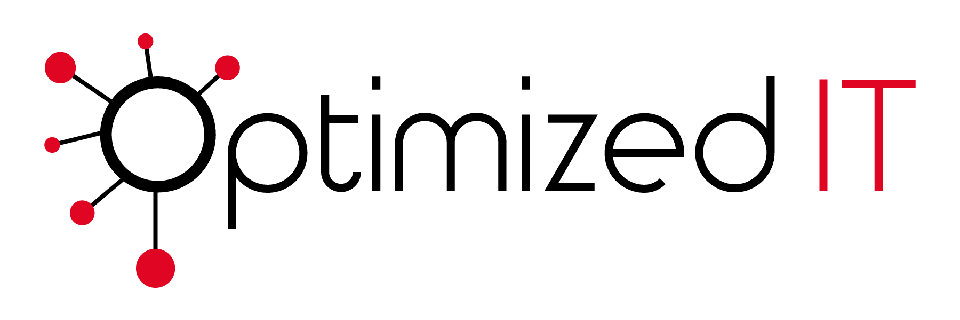The idea of outsourcing IT support to a third-party service provider isn’t new. IT services for hire have been around since before the internet. But they haven’t been nearly as important as they have been for the past ten or twenty years.
As more core business operations take place in the digital space, technology expertise makes a big difference for companies. It can help them stand out, resolve serious problems, improve productivity, and more.
The question is, what type of services are available, and what does your company need?
What Are Specialized and Managed IT Services?
Professional or specialized services are available in various fields like IT, legal, accounting, etc. Typically, companies request specialized IT services on a per-project basis. They can include assistance in upgrading the IT infrastructure, crisis response, business strategy, equipment repairs, software overhauls, and much more.
Expert third-party service providers can offer managed services. In the IT field, these services revolve around handling the ongoing management of IT infrastructure, network security, equipment repairs, web design, data protection, etc.
Key Similarities and Differences Between IT Services
It’s important to understand that while they sound similar, both types of IT services are quite different. And depending on what a company needs, each can provide some advantages.
Similarities
Professional or specialized IT services and managed IT services are both outsourced. For example, a company may enlist the services and expertise of IT professionals to help them on a specific project. However, using specialized services doesn’t automatically imply hiring a specialist.
At the same time, both services are delivered by specialists in their field.
Differences
The primary difference between managed and specialized services, regardless of the niche, is the time frame.
A professional services provider comes in when companies need additional expertise on a particular task or project. It can mean that the collaboration lasts days, weeks, or months. However, upon the project’s completion, the contract ends.
Managed IT services involve more long-term work. Usually, companies task their third-party service providers with overseeing all IT-related operations for businesses. This helps increase productivity and reduce payroll costs.
In a way, managed IT service providers can become partners. They may take charge of data backups, provide cloud solutions, offer 24/7 IT support, perform network monitoring, and handle the company’s cybersecurity needs.
Managed IT providers can offer equipment and software repair and maintenance. In contrast, using professional services for such tasks usually involves a one-time call to a technician to fix an urgent matter.
Is One Better Than the Other?
Both managed and professional IT services have their uses. For instance, companies with in-house IT departments may not always need a managed provider to back up their operations. Yet they could require the input of a professional on a more complex project.
Companies without the budget for an in-house IT department or with outdated technology solutions benefit the most from managed, optimized IT solutions and long-term partnerships.
With that in mind, managed IT services can be the best long-term solution for many companies, from startups to large enterprises. The bigger the infrastructure, the more people it takes to monitor, repair, and secure its devices and communication channels.
Managed IT service providers thrive with high-volume work covering many IT-related sectors.
In addition, managed IT can come in the form of optimized IT. That’s when managed service providers take on extra responsibility.
If managed comes from management and implies a more passive approach, optimized implies optimization. The service provider does more than passively monitor and respond only during a crisis or to support tickets.
Optimized IT service providers work consistently on improving their services, optimizing the client’s network and infrastructure, improving productivity, and staying up to date on the latest cloud-based solutions.
Companies outsourcing IT work to an optimized IT service provider can receive regular consultations, timely equipment repairs and upgrades, business and IT strategy guidance, etc. In essence, the third-party service provider takes on a more active role in helping their clients scale the business and improve their return on investment (ROI) through technology.
Know What Your Business Needs
Not every business interacts with or relies on technology as much as others. Some have a small digital footprint or don’t need access to high-tech solutions.
However, operating in the digital space can offer everyone a significant advantage, from self-employed individuals to accounting firms to manufacturing companies and many others.
Identifying the best IT service provider is crucial for creating a solid business strategy and streamlining employee, customer, and partner communications. Whether it’s data protection, improving marketing, or something else, the right IT service provider can have a huge impact on a company.
Sometimes a project-based approach can help businesses save money. But ongoing support is more reliable as it ensures better infrastructure uptime, protection, and faster solutions.
Managed IT Is Still a Fast-Growing Industry
There are no signs to show the managed IT services industry slowing down. The industry enjoys a steady growth rate, especially with the spike in virtual workplaces. The infrastructure of many companies broke the boundaries of traditional office spaces, and many more devices show up on networks.
Today’s IT infrastructure and security are more complex and require dedicated experts to ensure proper management and optimization. Managed IT service providers offer the perfect blend of professionalism and technical expertise. Also, third-party providers can greatly impact a company’s bottom line, workflow, security, and online presence by participating in an advisory capacity when needed.
If you’re operating a business in Cincinnati, Columbus, Dayton, or Mansfield, contact OIT today to learn more about your IT service solutions.



Leave A Comment
You must be logged in to post a comment.